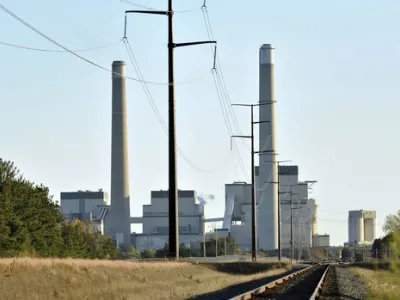Xcel electricity plan approved: clean energy, storage, and transmission

Published February 9, 2022
Yesterday, the Minnesota Public Utilities Commission (PUC) made its determination in Xcel Energy’s integrated resource plan (IRP), mapping Xcel’s future power generation. The plan will substantially reduce emissions while maintaining reliability. Under the plan, Xcel will close expensive fossil fuel generators, build out clean energy resources, help affected power plant workers and communities through the transition, and consider effects on historically disadvantaged communities.
Discussions regarding this IRP began as long ago as 2017, when the legislature – at Xcel’s urging – passed a law allowing the utility to bypass the usual regulatory process to build a baseload natural gas power plant at its Sherco generating station in Becker, Minnesota. Xcel relied on this gas plant in its initial resource plan. However, utility system modeling conducted independently by CUB and multiple clean energy organizations all found that Xcel could maintain reliability more cheaply using renewable power and battery storage.
Xcel amended its plan last summer, finding it did not need the Sherco gas plant. Instead, Xcel asked for two smaller “peaker” gas plants to be used only occasionally, at times of high power demand and low wind and solar generation. Again, CUB and clean energy groups concluded that these plants were not necessary. Prior to the hearing, Xcel dropped its request for approval of the peaker plants, leaving room for broad consensus on the majority of its plan.
In an agreement signed by Xcel, clean energy organizations, labor unions, and CUB – and approved yesterday by the PUC – Xcel’s generation will be more than 80% carbon free by 2035. Under the plan, Xcel will:
- Close its remaining Minnesota coal plants by 2030 and rely largely on nuclear and renewable energy.
- Build a substantial amount of solar, wind, and battery storage (approximately 4,670 MW by 2032).
- Build two new in-state transmission lines to make room for this new generation and storage.
- Pursue a 10-year extension for its Monticello nuclear plant. (The future of the Prairie Island nuclear plant will be considered in the next IRP.)
- Assist customers to achieve a large amount of energy conservation.
- Better plan for beneficial electrification of space and water heating and transportation, increased load flexibility, and distributed solar generation.
For the first time in an IRP approved in Minnesota, the plan also includes provisions related to equity. Among other requirements, Xcel must design programs to make distributed generation accessible to low-income and Black, Indigenous, and communities of color who have disproportionately borne the costs associated with energy systems, and to establish an environmental justice advisory board.
Xcel indicated that it still believes it will likely need the gas peaker plants within the next 5-7 years. However, CUB’s and the environmental groups’ analyses showed that this need can be met with renewable resources, storage, and the utility’s existing gas plants. We will continue to advocate against expensive and unnecessary fossil fuel investments.
This plan confirms Xcel is a continued leader in electricity decarbonization and puts the utility on a path to meet its goal of being 100% carbon free by 2050. The approved plan is largely consistent with the direction that CUB advocated for in our Consumers Plan. While it does not include everything that we recommended, the approved plan is also supported by labor groups and the utility itself. Nearly three years of comments and discussion have resulted in a great path forward for Xcel customers and the state.